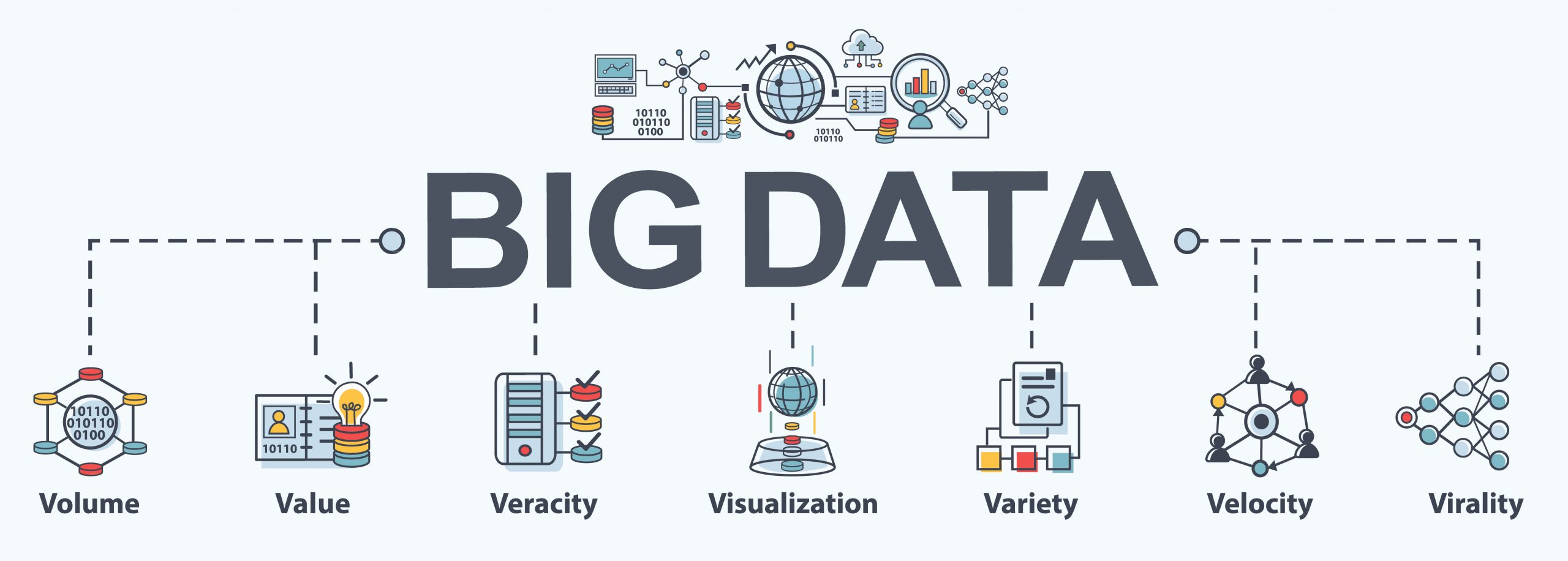BIG DATA AND DATA ANALYSIS

Overview:
Big data is a term that applies to the growing availability of large datasets in information technology. Big data analytics is a field that treats ways to analyze, systematically extract information from, or otherwise deal with data sets that are too large or complex to be dealt with by traditional data-processing application software. Data with many fields (rows) offer greater statistical power, while data with higher complexity (more attributes or columns) may lead to a higher false discovery rate. Big data analysis challenges include capturing data, data storage, data analysis, search, sharing, transfer, visualization, querying, updating, information privacy and data source. Big data was originally associated with three key concepts: volume, variety, and velocity. The analysis of big data presents challenges in sampling, and thus previously allowing for only observations and sampling. Therefore, big data often includes data with sizes that exceed the capacity of traditional software to process within an acceptable time and value.
Big data is playing a key role in helping law enforcers take a proactive step by helping them avert a crime, rather than following the traditional approach of responding/reacting to a crime.
For an ICT emerging country like Bangladesh, the potential that big data holds is really significant. Moreover, key drivers catalyzing big data adoption are all present in Bangladesh. Across Asia Pacific, recent trends suggest that technology is increasingly moving out of the realms of IT departments and CIOs. By 2016, Line of Business Executives will be directly involved in 80% of new IT Investments. Heads of Marketing, for instance, will have a bigger say than CIOs, on what technology to adopt for better measurement of churn rate and gaining insight into loyalty figures.
What is Big Data?
Big Data is a collection of data that is huge in volume, yet growing exponentially with time. It is a data with so large size and complexity that none of traditional data management tools can store it or process it efficiently. Big data is also data but with huge size.
Big Data in its simplest definition means data which is either very big, or growing very fast, or contains much variety such as unstructured data.
The future of Big Data in Bangladesh:
The big data revolution we have been witnessing in the last few years has changed the way we operate our businesses across all sectors. In Bangladesh, the amount of data generated annually has grown tremendously over the last decade due to increased internet penetration, as well as the ever-growing popularity of internet-enabled mobile devices. Data analytics combined with artificial intelligence applications is projected to generate USD 13 trillion by 2030, and this could determine the next world order, much like the role that oil production has played in creating economic superpowers. To get a share of this pie and cope with the rapidly growing demand for cloud-based solutions and predictive analytics capabilities, big data should be at the centre of the government’s digitisation strategies to ensure smooth adoption of the technology by government agencies and industries.

* Collected from BVCL Forum
Requirements to get investment:
According to the investor eye, there are few characteristics of business that are lucrative for investors to invest in business.
-
- Companies must have experience and domain knowledge.
- If anyone is working with a product, they need to know the use and right solution system of that product.
- Must have working experience minimum 1 year and owned relevant products for work purposes.
- Serve the service minimum 10 different clients.
- Maintain and preserve client and other working documents.
- If invent device then patent and sell at least 2-3 clients for good client feedback.
- If needed maintenance warranty issues for customer satisfaction.
- Complete setup for relevant tasks. There are not only need a huge setup but also have setup at least do the job.
